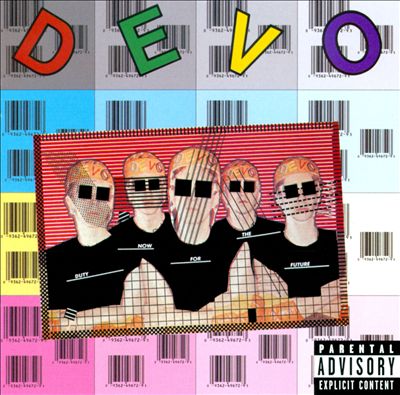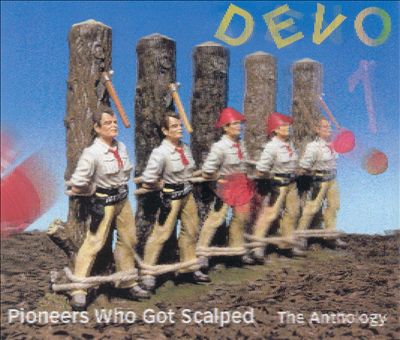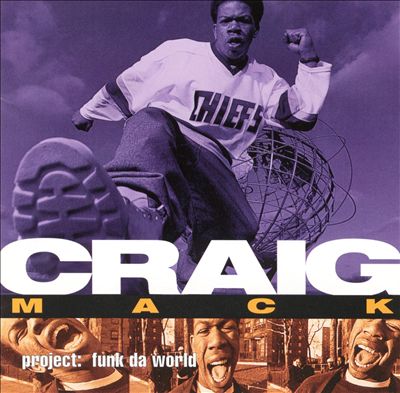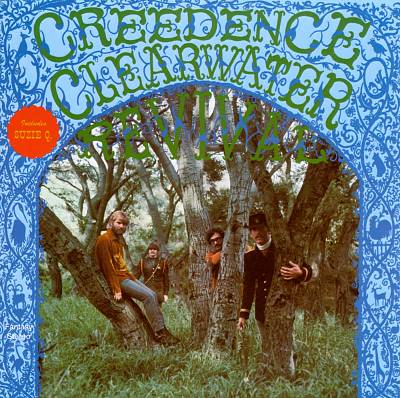Devo, also known as DEVO is an American rock band formed in 1974 by Jerry Casale and Mark Mothersbaugh. The group was part of the new wave, punk and experimental music movements. They are well-known for their satirical lyrics that make references to popular culture. Their debut album
The multi-talented and influential singer, songwriter, and bass player for the band Devo wrote some of the most known songs in rock history. The origins of his creative genius are interesting to say the least.
The “devo whip it” is a song from the band Devo. It was released on their album “Freedom of Choice” in 1978. The lyrics are about a man who has been whipped by his girlfriend, and he’s now going to make her pay for it.
Devo was one of the most creative and (for a time) popular new wave bands, but they were also one of the most misunderstood. Devo was founded in 1972 in Akron, Ohio, by Kent State art students Gerald Casale and Mark Mothersbaugh. Their notion of “de-evolution” — the belief that instead of advancing, humanity has regressed, as demonstrated by the dysfunction and herd mentality of American culture — inspired the band’s name. Their music reflected this view of society as rigid, repressive, and mechanical, with appropriate touches such as jerky, robotic rhythms; an obsession with technology and electronics (the group was one of the first non-prog rock bands to make the synthesizer a core element); and often atonal melodies and chord progressions, all of which were filtered through the eyes of geeky misfits. Devo became a cult phenomenon, aided in part by their contemporaneous focus on highly stylized graphics, and briefly burst into the mainstream with the hit song “Whip It,” whose accompanying video became a fixture of the nascent MTV network. Devo’s simple, basic electronic pop sound, which resembled a less threatening version of the Residents at times, was extremely influential, but it was also rather restricted, and when other bands expanded on the group’s ideas, Devo appeared unable to keep up. The band disbanded in the early 1990s after a string of mostly boring recordings, and Casale and Mothersbaugh focused on other projects.
At the start of the 1970s, both Casale and Mothersbaugh were students at Kent State University’s art school. With the help of a book called The Beginning Was the End: Knowledge Can Be Eaten, which claimed that humanity descended from mutant, brain-eating apes, the idea of de-evolution was created with the help of friend Bob Lewis, who joined an early version of Devo and eventually became its manager. The theory was modified to suit the trio’s vision of American society as a rigid, dichotomized tool of repression that ensured its members acted like clones, marching through life with mechanical, assembly-line precision and little tolerance for ambiguity. Until Casale saw the notorious National Guard murders of student protestors at the university, the whole idea was dismissed as a farce; now, there appeared to be a genuine argument to be made.
Casale (bass), Mark Mothersbaugh (vocals), and Mark’s brothers Bob (lead guitar) and Jim, who performed handmade electronic drums, established the original version of Devo in earnest in 1972. Jerry’s brother Bob joined the band as an extra guitarist, while Jim departed to be replaced by Alan Myers. For many years, the band refined its sound and approach, releasing a few songs on its own Booji Boy label and developing increasingly odd ideas (a time documented on Rykodisc’s Hardcore collections of home recordings). Mothersbaugh wore a baby-faced mask as Booji Boy (pronounced “boogie boy”), a symbol of infantile regression; there were recurring images of the potato as a lowly vegetable without individuality; the band’s costumes depicted them as identical clones with processed hair; and various sonic experiments were performed on records, using real and homemade synthesizers as well as toys, space cadets, and other props. Devo’s major break came with their soundtrack for the short film The Truth About De-Evolution, which received an award at the 1976 Ann Arbor Film Festival; David Bowie and Iggy Pop were pleased enough to sign the group to a Warner Bros. deal after seeing the film.
 Q: Are We Not Men? was recorded under the guidance of legendary producer Brian Eno. Some saw A: We Are Devo! as a call to arms, and it became an underground smash. Others considered Devo’s music, iconography, and content to be frightening; Rolling Stone, for example, referred to the band as fascists. However, such critique misses the point: Devo exaggerated conformity, emotional suppression, and dehumanization to criticize them, not to give homage to them.
Q: Are We Not Men? was recorded under the guidance of legendary producer Brian Eno. Some saw A: We Are Devo! as a call to arms, and it became an underground smash. Others considered Devo’s music, iconography, and content to be frightening; Rolling Stone, for example, referred to the band as fascists. However, such critique misses the point: Devo exaggerated conformity, emotional suppression, and dehumanization to criticize them, not to give homage to them.
 While 1979’s Duty Now for the Future was a solid effort, the band’s breakthrough came with Freedom of Choice in 1980, which included the gold-selling single “Whip It” and marked a high point in the band’s often unpredictable composition. The band’s low-budget futuristic appearance was juxtaposed against a down-home farm backdrop and undertones of S&M in the video for “Whip It,” which became an MTV hit. Devo’s commercial triumph, however, was short-lived. Fresh Traditionalists was released in 1981, and it was darker and more serious than the audience expected from a band generally regarded as a novelty act, and Devo appeared to be running out of new ideas. Bob Lewis was successfully prosecuted for theft of intellectual property when a recording of Mothersbaugh recognizing Lewis’ involvement in the development of de-evolution ideology was discovered, and the sessions for 1982’s Oh, No! It was Devo’s lyrical content was hampered by an ill-advised effort to utilize poetry penned by would-be Ronald Reagan assassin John Hinckley, Jr.
While 1979’s Duty Now for the Future was a solid effort, the band’s breakthrough came with Freedom of Choice in 1980, which included the gold-selling single “Whip It” and marked a high point in the band’s often unpredictable composition. The band’s low-budget futuristic appearance was juxtaposed against a down-home farm backdrop and undertones of S&M in the video for “Whip It,” which became an MTV hit. Devo’s commercial triumph, however, was short-lived. Fresh Traditionalists was released in 1981, and it was darker and more serious than the audience expected from a band generally regarded as a novelty act, and Devo appeared to be running out of new ideas. Bob Lewis was successfully prosecuted for theft of intellectual property when a recording of Mothersbaugh recognizing Lewis’ involvement in the development of de-evolution ideology was discovered, and the sessions for 1982’s Oh, No! It was Devo’s lyrical content was hampered by an ill-advised effort to utilize poetry penned by would-be Ronald Reagan assassin John Hinckley, Jr.
 As the 1980s progressed, Devo was reduced to cult status and critical apathy, which was exacerbated by the poor quality of albums like Shout from 1984 and Total Devo from 1988. Alan Myers left the band in 1986 due to the band’s move to electronic drumming, and was replaced by ex-Sparks and Gleaming Spires drummer David Kendrick. Devo recorded another album of new material, Smooth Noodle Maps, in 1990, after the Rykodisc label released E-Z Listening Disc in 1987, which collected “Muzak”-style versions of fan favorites, originally issued on cassettes only sold at shows, and after which the bandmembers began to focus on other projects. Mark Mothersbaugh went on to write theme music for MTV’s Liquid Television, Nickelodeon’s Rugrats, Pee-Playhouse, Wee’s and the Jonathan Winters comedy Davis Rules. He also sang backup with Debbie Harry and played keyboards with the Rolling Stones. He also programmed synthesizers for Sheena Easton and played keyboards with the Rolling Stones. Boosted by his success, Mothersbaugh founded Mutato Muzika, a successful production business that hired his Devo bandmates. Meanwhile, video clips for the Foo Fighters’ “I’ll Stick Around” and Soundgarden’s “Blow Up the Outside World” were filmed by Jerry Casale, who directed most of the band’s videos. Devo’s minimalistic electro-pop was finally given new exposure on six dates of the 1996 Lollapalooza tour, to enthusiastic fan response, as their legend grew and other bands acknowledged their influence (Nirvana covered “Turnaround,” while “Girl U Want” has been recorded by Soundgarden, Superchunk, and even Robert Palmer).
As the 1980s progressed, Devo was reduced to cult status and critical apathy, which was exacerbated by the poor quality of albums like Shout from 1984 and Total Devo from 1988. Alan Myers left the band in 1986 due to the band’s move to electronic drumming, and was replaced by ex-Sparks and Gleaming Spires drummer David Kendrick. Devo recorded another album of new material, Smooth Noodle Maps, in 1990, after the Rykodisc label released E-Z Listening Disc in 1987, which collected “Muzak”-style versions of fan favorites, originally issued on cassettes only sold at shows, and after which the bandmembers began to focus on other projects. Mark Mothersbaugh went on to write theme music for MTV’s Liquid Television, Nickelodeon’s Rugrats, Pee-Playhouse, Wee’s and the Jonathan Winters comedy Davis Rules. He also sang backup with Debbie Harry and played keyboards with the Rolling Stones. He also programmed synthesizers for Sheena Easton and played keyboards with the Rolling Stones. Boosted by his success, Mothersbaugh founded Mutato Muzika, a successful production business that hired his Devo bandmates. Meanwhile, video clips for the Foo Fighters’ “I’ll Stick Around” and Soundgarden’s “Blow Up the Outside World” were filmed by Jerry Casale, who directed most of the band’s videos. Devo’s minimalistic electro-pop was finally given new exposure on six dates of the 1996 Lollapalooza tour, to enthusiastic fan response, as their legend grew and other bands acknowledged their influence (Nirvana covered “Turnaround,” while “Girl U Want” has been recorded by Soundgarden, Superchunk, and even Robert Palmer).
 Devo published a CD-ROM game (The Adventures of the Smart Patrol) and a music album the following year, in addition to performing select Lollapalooza dates. In 2000, Rhino published two double-disc Devo anthologies: the first was the half-hits/half-rareties Pioneers Who Got Scalped: The Anthology, and the second was the limited-edition mail-order CD Recombo DNA (on Rhino’s Handmade label), which included only previously unheard demos. In 2001, the Mothersbaugh and Casale brothers regrouped as the Wipeouters for P’Twaaang!!!, a one-off surf release. Casale’s solo band Jihad Jerry & the Evildoers debuted in 2006 with the album Mine Is Not a Holy War. In the same year, the band collaborated with Disney on Dev2.0, a band/project/album that included a group of preteens re-recording old Devo songs, with certain lyrics changed to make them more “family friendly.”
Devo published a CD-ROM game (The Adventures of the Smart Patrol) and a music album the following year, in addition to performing select Lollapalooza dates. In 2000, Rhino published two double-disc Devo anthologies: the first was the half-hits/half-rareties Pioneers Who Got Scalped: The Anthology, and the second was the limited-edition mail-order CD Recombo DNA (on Rhino’s Handmade label), which included only previously unheard demos. In 2001, the Mothersbaugh and Casale brothers regrouped as the Wipeouters for P’Twaaang!!!, a one-off surf release. Casale’s solo band Jihad Jerry & the Evildoers debuted in 2006 with the album Mine Is Not a Holy War. In the same year, the band collaborated with Disney on Dev2.0, a band/project/album that included a group of preteens re-recording old Devo songs, with certain lyrics changed to make them more “family friendly.”
 In 2007, Devo returned to self-released material with the digital song “Watch Us Work It,” but a promised new album never materialized. They came back to Akron in 2008 for a one-time performance to promote Barack Obama’s presidential campaign, with all profits going to the Summit County Democratic Party. Following deluxe reissues of Q: Are We Not Men? in 2009, A: We Are Devo! and Freedom of Choice put the band back on the road to perform the complete albums live, and production on a new record continued. By the end of the year, the band had re-signed with Warner for a new album, which was initially named “Fresh.” Something for Everybody, released in 2010, was inspired by an Internet campaign in which fans were given the opportunity to vote for the full-12 length’s songs. Bob Casale, who was 61 years old at the time, died suddenly and unexpectedly from heart failure on February 17, 2014. Ryko’s E-Z Listening Disc was released as EZ Listening Muzak in 2016, with a new recording of Something for Everybody’s “Human Rocket” added to the lounge-style compilation.
In 2007, Devo returned to self-released material with the digital song “Watch Us Work It,” but a promised new album never materialized. They came back to Akron in 2008 for a one-time performance to promote Barack Obama’s presidential campaign, with all profits going to the Summit County Democratic Party. Following deluxe reissues of Q: Are We Not Men? in 2009, A: We Are Devo! and Freedom of Choice put the band back on the road to perform the complete albums live, and production on a new record continued. By the end of the year, the band had re-signed with Warner for a new album, which was initially named “Fresh.” Something for Everybody, released in 2010, was inspired by an Internet campaign in which fans were given the opportunity to vote for the full-12 length’s songs. Bob Casale, who was 61 years old at the time, died suddenly and unexpectedly from heart failure on February 17, 2014. Ryko’s E-Z Listening Disc was released as EZ Listening Muzak in 2016, with a new recording of Something for Everybody’s “Human Rocket” added to the lounge-style compilation.
The “devo hits” is a compilation of some of the most popular songs by Devo. It includes their top songs, biography, and albums.
Frequently Asked Questions
What song is Devo famous for?
A: Devo is a punk rock band from Akron, Ohio. They released an album called Something for Everybody in 1978 which featured the song Whip It.
What hit songs did Devo have?
A: The band Devo had a hit single in the 1980s with Whip It.
What type of music is Devo?
A: Devo is a band from Akron, Ohio. They are known for their pop classics Whip It and Girl U Want.
Related Tags
- devo discography
- devo documentary
- devo meaning
- devo mongoloid







